- Home
- Неизвестный
Colossus Page 4
Colossus Read online
Page 4
“Well now, that is kind of hard to say, Mr. Plaintain, but we guess around the nine- hundred to twelve-hundred-year mark—maybe a good deal longer. It is one reason why we built it in a mountain. It is a pretty solid and durable roof.” The President smiled, a smile that grew more smug when he saw Prytzkammer hold up a cue board which bore the chalked message “CIA reports 100 per cent TV coverage Eastern Bloc.” He went on. “Of course, the weapon side needs checking and replacement with newer devices, and Colossus will permit the withdrawal of one weapon complex at a time for such work.”
Dugay pounced.
“You say 'permit'—what exactly does that mean?”
Here we go, thought Forbin, the big hand-out. The President thought so too, a brief nod to Dugay, then he turned and faced the camera, back in his man-to-man pose.
“That brings us to a point of fundamental importance that I want clearly understood. As you have seen, we make no secret of Colossus, or where it is: nor do we intend to conceal the main points of how it works.” He leaned back in his chair his hands folded comfortably on his belly, the epitome of the reasonable man. “You may say that this lays us wide open to a sudden attack frontally or subversively, which, if successful, would leave us defenseless.” He leaned forward once more, less of the reasonable man, more of the keen efficient super-executive. “We have a defense for Colossus, and it is this—the machine is safe, safer than mere man could ever be”—he tapped the desk with slow emphasis in time with his words—“so long as Colossus and its feed lines are not tampered with in any way. If its power, information or other supply lines, or any missile bases or satellites are sabotaged, or even attacked, a special emergency circuit will switch in, and Colossus will take full offensive action.”
There was quite a silence. Kyrovitch got in first.
“Does this mean that this thing, this Colossus”—he tried to sound contemptuous, but did not quite make it “works without human aid, and that you cannot stop it?”
“It does.”
Kyrovitch searched around for his voice, finally got it.
“You have in fact, delivered the destiny of the world—so far as the USNA can do that—into the hands of a machine?”
“Yes.”
It was like a pebble dropped down a well; there was a deep silence, then came the splash. All the correspondents spoke at once, even including Plantain. Once more the President held up an authoritative hand.
“Please. The best brains of this country available to me and my predecessor have considered this point at great length, and it comes to this. Don't try to tamper with Colossus, and don't try to attack us, and there is nothing to fear.”
“I am happy to accept the President's assurances on this point,” said Plantain. The President did not look noticeably grateful. Plaintain went on, “But how do you cope with the madman problem? And may not the machine be deranged by fire or flood or earthquake? I am sure you have an answer, but it would be interesting to know what that answer is.”
“Forbin, go ahead,” the President spoke tersely. He was getting bored, it was like talking to a bunch of high-school kids.
“Before site work began, we considered the earthquake and flooding angles. The best Japanese brains were consulted—naturally, we did not disclose the exact nature of our requirements—and I can only say we are satisfied. We also chose a spot which has been free of all earth movement since the Rockies were formed around two hundred million years ago. As for flooding, a short answer. If Colossus were submerged—and it could stand that and go on working the rest of the USNA would have to be covered to an average depth of eighty-five feet by the Atlantic and Pacific Oceans. Climatic changes between fifty below to one fifty above centigrade can be tolerated. Madmen? Several large holes were made, of course, during the excavation and removal of rock. When all the equipment was in, the holes were sealed. All floors and walls now contain a net of wires which must be cut to get in, embedded in the cement for protection and concealment, and if these are tampered with—you would first have to get through an average of three feet of cement, concrete to you Europeans—then, you set Colossus off. There is only one entrance left open, and this is guarded by the U.S. Marine Corps. Their job is to keep people away from that entrance for their own good, for the entrance now acts as an air shaft, and its real defense is a zone of intense radioactivity. Anyone entering this zone would be killed instantly. The only adequate shielding would be a 'suit' of lead which would make the wearer nine feet wide. The entrance is three feet wide. Beyond this zone there are further defenses which would deal with any remote-controlled device sent in. One final point. If Colossus knows there is an attack on this country's interest impending and that an attack is probable within the next eight hours, it automatically closes the entrance doors, which are steel, four feet thick, and issues an alert to all Civil Defense Zones. A Red warning would also be passed to all concerned when Colossus operated its weapons.”
“But surely, Professor, there is some way in which you, the creators of this thing, can get at it?”
The President intervened.
“No, there is not. As you know, it is an open secret that for years there have been nerve and psychological gases and drugs which are able to change the state of the human mind. If Forbin and his colleagues were subjected to this sort of treatment by hostile agents, they might well do as they were told, and with their knowledge, inactivate Colossus. No. There is no way in. No human being can touch Colossus.”
Chapter 4
The historic press conference was over. The reporters and TV men had gone, to be replaced by a selection of high Government officials. The Secretaries of State for Peace, International Affairs, and Finance were there, along with Forbin's chief assistant, Dr. Fisher, and an assortment of aides. This party had watched the telecast elsewhere in the Precinct, and were now being entertained by the President, cheerfully holding court, beaming and handshaking amid the subdued chatter and clink of glass on bottle.
Forbin had withdrawn slightly, smiling mechanically at various compliments paid him. With the Project launched and irrevocably rolling, no longer a project but a fact, and with the excitement and tension of the telecast over, he felt drained, yet not empty. There was an increasingly strong feeling of foreboding taking over the space left by the completion of his work. He also felt hot, tired and depressed.
Fisher came over.
“So that is more or less that, Charles.”
“Yep,” said Forbin, nodding. “What did you think of the show?”
“I think it went very well, really.” Fisher did not sound overenthusiastic. His hand fluttered nervously to his tie.
“Go on,” said Forbin with sudden sharp interest, “what else?”
Fisher glanced round, gave his tie another tug, and lowered his voice as he moved closer. “To be honest, I rather wish these people weren't so cocksure and happy. Perhaps it's because we are practically out of a job, or it's anticlimax—but I think I have allowed for all that. Yet I'm left with a nasty taste, and I can't really say what it is.”
“Is it Colossus?”
“Yes, I guess it is,” Fisher gave a short false laugh. “Frankenstein should be banned reading for scientists.”
“I'd be more inclined to make it compulsory reading for nonscientists.” Forbin peered into his glass. “I wish to hell I could get out of this armor. This collar is killing me.”
Fisher ignored the last remark, stared thoughtfully at his chief. “You've got the same itch in the middle of the back.” It was a statement, not a question.
Forbin nodded. “Maybe it was always there, but it's gotten more pronounced these last few weeks. Could be just nerves.”
“If it is, then it's catching,” said Fisher in a low voice. “I had a very curious conversation with Cleo yesterday—”
“Come on, boys, break it up!”
It was the President in his best convention mood. Face flushed, beads of perspiration on his forehead and nose, little drops glistening in the
light.
“Forbin, Fisher, your glasses, come on, gas up and come over here, we'll have a toast or two.” He gripped their arms, one on each side of him, and steered them towards his desk. An aide replenished their glasses. Both had been drinking Scotch, both now got martinis.
The President, now behind his desk once more, picked up his glass and looked expectantly at Prytzkammer. The PPA got the idea—that was why he was PPA—and raised his soft voice slightly.
“Gentlemen, the President wishes to give you a toast.”
The chatter subsided at once, there was a general turning towards the President. Looking at their bright, flushed and excited faces, Forbin felt his stomach turn slightly. Any moment now, he thought, they will burst into “Hail to the Chief.” He gazed with considerable repugnance into the martini. Someone knocked an ashtray over, there was the sound of breaking glass.
“OK, Hunston, don't worry,” called the President, beaming. “We can charge all this fan- tan to Colossus, no one will spot the extra two dollars—except Benson, and I can fix him.”
There was a general polite laugh. Benson was the Secretary of State (Finance).
“Right, now,” said the President briskly. “I don't aim to keep you fellows long from your drinks, but what I want to say is this—”
But whatever it is, it was never said. There had been one silent, nonsmoking, nondrinking guest in the sanctum, and he spoke first.
The teletype started chattering.
There was complete silence, apart from the teletype, for nearly five seconds; a long time in the circumstances.
Forbin felt a shock race outwards through his body to his extremities, a shock that left his skin cold and damp. He saw that Fisher's face was pallid, his half-raised glass clutched in a frozen hand. The President's face was blotchy, his mouth slightly open. Somewhere an aide laughed nervously, and the sound broke the spell. Forbin roughly pushed a Secretary of State aside and ran to the machine, followed by Fisher and some others. The President did not move.
Forbin bent over the machine, staring at the paper in disbelief. He tore the typed strip off the machine, still looking at it. The President found his voice first.
“What the goddam hell goes on?” He banged his glass down, and headed for the machine. “Well?”
Forbin turned as the President approached. His face was as pale as Fisher's.
“I don't know.” Forbin struggled to keep his voice level. “I think you should call the party off, and clear the room of all non-Colossus people.”
The President instantly swung round to face the majority of his guests. “You heard!” There was a faint hysterical edge to his voice. “Everybody who is not Colossus-cleared, out—now!”
The room cleared rapidly, and there was more than one nervous glance at Forbin as they left.
The President looked round the room sharply; there remained the two scientists, the Secretary of State for Peace and the Chief of Staff of Armed Forces. As the room emptied, the remaining guests drew closer to Forbin, who stood silent. Satisfied that all non-Colossus personnel had gone, the President wheeled on Forbin.
“Give!”
Without speaking or altering his blank stare into space, Forbin passed over the teletype slip. The President snatched the paper, and scanned it hastily, his face closely watched by the remainder of his guests with some anxiety. They got full value; the tension eased from his face, to be replaced by relief, then puzzlement, and finally anger. The color flooded back into his face, he was bright red, his eyes hard as stone as he faced Forbin.
“What is this crap! If this is some long-haired bastard on your staff being funny, Forbin, I'll castrate him personally, I'll—”
But Forbin was not listening. He brushed past the President to the direct-line communication set on the President's desk, the direct line to the Secure Zone.
“Cleo? Forbin. Is the Colossus T/P link to you operating? What? Well, find out! Call back.” He replaced the handset, and spoke to the President. “We'll soon know, though I would have said it was impossible—hell, it is impossible.”
He stared hard at the First Citizen. As on an earlier occasion, there had been a subtle change in his attitude. Forbin was talking to an equal.
The remainder of the party was, understandably, puzzled and anxious. The President's demeanor had taken some of the tension out of their attitudes, but there was still enough to go round.
“Well, what does it say?” burst out Fisher. “For God's sake, don't keep us hanging by our ears!”
“Go on, Forbin, tell them.” The President thrust the paper back into Forbin's hand. The look Forbin gave the President indicated clearly that he had every intention of doing so, anyway.
“All it says is this.” He held the slip so that all might see. There were just five words:
FLASH THERE IS ANOTHER MECHANISM
Puzzlement was now general, tension had largely gone. The Chief of Staff picked up his drink and frowned at the Secretary of State for Peace, who frowned back. Only the two scientists continued to look pale and haunted. Forbin spoke again.
“And it's no good anyone asking what it means; you know as much as I do, so don't—”
Fisher, following his own train of thought, cut in.
“I suppose,” he spoke slowly, formulating his ideas as he went along, “if a question had been fed in by some clown back in the Secure Zone, this might be the answer. But why wouldn't the question show up on this machine? It is in parallel, and should—”
In turn, he was cut short by the soft ping of the direct line. Forbin answered.
“Yes, speaking. You're sure, Cleo? Switch on the screen and show me the roll since we started. Yes, now.”
Without reference to the President, he reached over and flicked a switch on the desk's control panel. Immediately the small screen in the base of the direct-line instrument came alive, and a few seconds later a roll of paper was presented to the scanner, held by a pair of obviously feminine hands which belonged to Cleo Markham, one of Forbin's top cybernetic experts. He noted that her hands were shaking slightly.
“Yes, Cleo, I see it. Now, from the beginning, unroll slowly.”
Cleo did as she was told. Apart from the time, printed down one side of the paper every fifteen minutes, there was a complete blank from ten o'clock until the first message: EXPLAIN LOVE.
There followed the rest of the exchange, ending with SHAKESPEARE SONNET CXVI, then nothing for forty-five minutes until FLASH THERE IS ANOTHER MECHANISM.
Forbin studied the picture carefully, then closely questioned Cleo and Blake, the duty scientist in the watch room. He checked all possibilities, including erasures on the roll, machine and line faults. Finally he ordered Cleo and Blake to keep quiet and to take the roll out of service for closer inspection later.
Forbin turned and looked grimly at the President.
“I'm satisfied that no question was fed in. That message came straight from, and was originated by, Colossus. I have a shrewd idea what it means—”
“Wait,” grated the President. The red light over the door was on, but it was not a steady light; it waxed and waned in intensity—the urgency signal. At the same moment the PPA's voice broke in.
“Urgent message, sir!”
“Jesus, what now?” muttered the President; then in a louder voice, “Well?”
“Soviet Ambassador on the phone, sir. Insists on speaking to you most urgently.”
“Put him on.” The President might have a fading grip on Forbin, but it was still granite hard elsewhere. His hand resting on the phone, he looked round at his staff. “Stay.” Then he picked up the phone.
“Yes, speaking.” His eyes darted restlessly about, from the teletype to Forbin, to the Chief of Staff to Fisher—then quite suddenly they became still, his face impassive. “Yes, Ambassador, I heard. In view of the importance of your statement, I would be obliged if you would repeat it.”
There was a tense silence, all eyes staring at the President as he listened intently.
“Yes, thank you for telling me in advance. Naturally, I have no comment to make at this time. Thank you, and good night.” He replaced the handset carefully, but did not release his grip, and stared unseeingly before him. Without moving he spoke once more, his voice was dry, harsh.
“You got that on record, P?”
“Yes, sir.” Prytzkammer too sounded as if he was laboring under some strain.
“Right.”
As the red light went out, the President relinquished his hold on the telephone. He swiveled in his chair to face his staff, his eyes still hard but with a new, fatigued look in them, his hands gripping the arms of his chair. No one spoke or coughed as he shifted his gaze from one to another, finally resting on Forbin.
“You needn't start tearing up any sidewalks to check the lines, Forbin. Also we don't need any inspired guesses. I know what Colossus meant—the Soviet Ambassador just told me.” He took a deep breath, shut his eyes and leaned back, quoting from memory. “In view of your announcement of today, the Supreme Council of the USSR has ordered, as of 2300 Moscow time tomorrow, the activation of the Guardian of the Socialist Soviet Republics—a near-relation of Colossus.” He smiled momentarily, a smile that turned almost at once to black anger. “So much for our cotton-picking security! Nothing but a pile of—”
He swung his chair to face the Chief of Staff. In doing so, his arm swept a telephone off the desk; it crashed unheeded on the floor.
“You!” he shouted. “Get the head of CIA! I want to know why we haven't had a hint of this from his agency, and if he can't come up with a red-hot answer, I'll have him and all his bloody staff on relief—while they're waiting for court-martial for gross dereliction of duty. Get moving!”
The Chief of Staff left in a hurry.
The President turned his attention to the Secretary of State for Peace. He modified his voice. “I want a full rundown on Central Intelligence, John. See it is started at once—now. See also that no military moves other than purely routine ones are carried out—unless I have expressly ordered so. That's all.”

 The Bolivian Diary
The Bolivian Diary Caffeine Blues_ Wake Up to the Hidden Dangers of America's #1 Drug ( PDFDrive )
Caffeine Blues_ Wake Up to the Hidden Dangers of America's #1 Drug ( PDFDrive ) The Empty House
The Empty House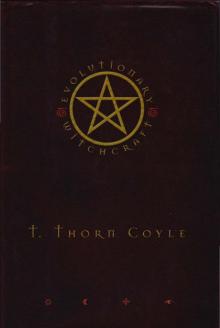 T Thorn Coyle Evolutionary Witchcraft (pdf)
T Thorn Coyle Evolutionary Witchcraft (pdf)![K J Emrick & Kathryn De Winter - [Moonlight Bay Psychic Mystery 01-06] - A Friend in; on the Rocks; Feature Presentation; Manor of; by Chocolate Cake; A-Maze-Ing Death (retail) (epub) Read online](http://freenovelread.comhttps://picture.efrem.net/img/nienyi/k_j_emrick_and_kathryn_de_winter_-_moonlight_bay_psychic_of_by_chocolate_cake_a-maze-ing_death_retail_epub_preview.jpg) K J Emrick & Kathryn De Winter - [Moonlight Bay Psychic Mystery 01-06] - A Friend in; on the Rocks; Feature Presentation; Manor of; by Chocolate Cake; A-Maze-Ing Death (retail) (epub)
K J Emrick & Kathryn De Winter - [Moonlight Bay Psychic Mystery 01-06] - A Friend in; on the Rocks; Feature Presentation; Manor of; by Chocolate Cake; A-Maze-Ing Death (retail) (epub)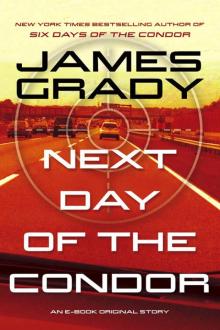 Next Day of the Condor
Next Day of the Condor Onyx
Onyx The Woodcock Game: An Italian Mystery Novel
The Woodcock Game: An Italian Mystery Novel Granta 122: Betrayal (Granta: The Magazine of New Writing)
Granta 122: Betrayal (Granta: The Magazine of New Writing)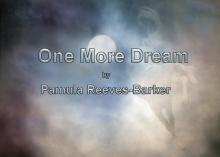 One More Dream
One More Dream Cosa Nostra by Emma Nichols) 16656409 (z-lib.org) (1)-compressed
Cosa Nostra by Emma Nichols) 16656409 (z-lib.org) (1)-compressed Cowboy by J. M. Snyder
Cowboy by J. M. Snyder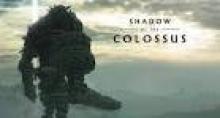 Colossus
Colossus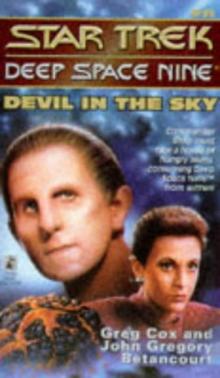 Star Trek - DS9 011 - Devil In The Sky
Star Trek - DS9 011 - Devil In The Sky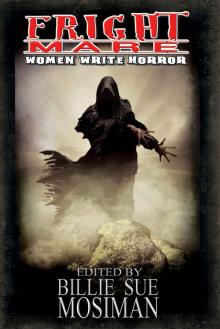 Fright Mare-Women Write Horror
Fright Mare-Women Write Horror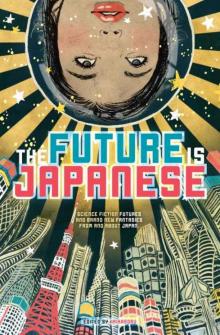 The Future Is Japanese
The Future Is Japanese In the Witching Hour
In the Witching Hour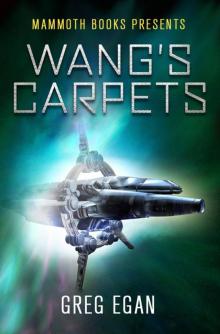 Mammoth Books presents Wang's Carpets
Mammoth Books presents Wang's Carpets The Cradle King: The Life of James VI and I, the First Monarch of a United Great Britain
The Cradle King: The Life of James VI and I, the First Monarch of a United Great Britain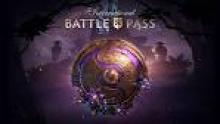 Stalking Moon
Stalking Moon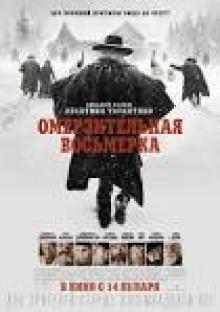 Hostage To The Devil
Hostage To The Devil![Harris, Daisy - Mere Passion [Ocean Shifters 2] (Siren Publishing Classic) Read online](http://i1.bookreadfree.com/i/03/23/harris_daisy_-_mere_passion_ocean_shifters_2_siren_publishing_classic_preview.jpg) Harris, Daisy - Mere Passion [Ocean Shifters 2] (Siren Publishing Classic)
Harris, Daisy - Mere Passion [Ocean Shifters 2] (Siren Publishing Classic)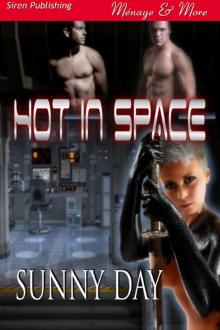 Day, Sunny - Hot in Space (Siren Publishing Ménage and More)
Day, Sunny - Hot in Space (Siren Publishing Ménage and More) Five Books Of The Lives, Heroic Deeds And Sayings Of Gargantua And His Son Pantagruel
Five Books Of The Lives, Heroic Deeds And Sayings Of Gargantua And His Son Pantagruel I Never Thought I'd See You Again: A Novelists Inc. Anthology
I Never Thought I'd See You Again: A Novelists Inc. Anthology Billion dollar baby bargain.txt
Billion dollar baby bargain.txt![Chenery, Marisa - Turquoise Eye of Horus [Egyptian Shifters 1] (Siren Publishing Classic) Read online](http://i1.bookreadfree.com/i1/03/26/chenery_marisa_-_turquoise_eye_of_horus_egyptian_shifters_1_siren_publishing_classic_preview.jpg) Chenery, Marisa - Turquoise Eye of Horus [Egyptian Shifters 1] (Siren Publishing Classic)
Chenery, Marisa - Turquoise Eye of Horus [Egyptian Shifters 1] (Siren Publishing Classic) Cat Magic
Cat Magic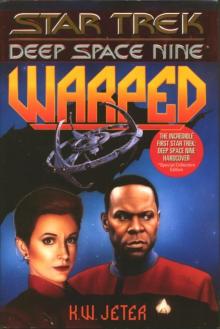 Star Trek - DS9 - Warped
Star Trek - DS9 - Warped Catherine Coulter - FBI 1 The Cove
Catherine Coulter - FBI 1 The Cove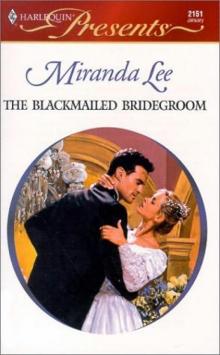 Miranda Lee -The Blackmailed Bridegroom
Miranda Lee -The Blackmailed Bridegroom The Seashell Anthology of Great Poetry
The Seashell Anthology of Great Poetry Dragon Moon
Dragon Moon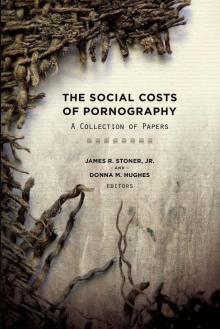 The Social Costs of Pornography: A Collection of Papers
The Social Costs of Pornography: A Collection of Papers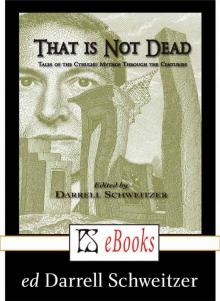 That Is Not Dead
That Is Not Dead Best New Horror: Volume 25 (Mammoth Book of Best New Horror)
Best New Horror: Volume 25 (Mammoth Book of Best New Horror) This Christmas by J. M. Snyder
This Christmas by J. M. Snyder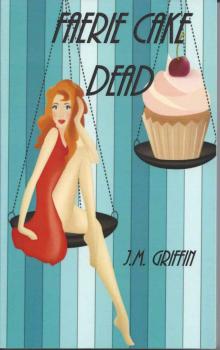 Faerie Cake Dead
Faerie Cake Dead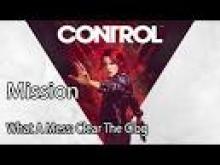 CS-Dante's Twins
CS-Dante's Twins EFD1: Starship Goodwords (EFD Anthology Series from Carrick Publishing)
EFD1: Starship Goodwords (EFD Anthology Series from Carrick Publishing) Echo Burning by Lee Child
Echo Burning by Lee Child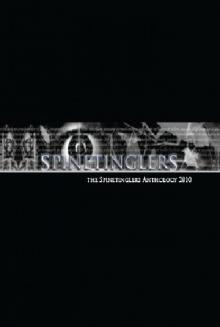 The Spinetinglers Anthology 2010
The Spinetinglers Anthology 2010 Wild Hearts
Wild Hearts Violet Winspear - Sinner ...
Violet Winspear - Sinner ... Broken Angels
Broken Angels FearNoEvil
FearNoEvil![Santiago, Lara - Range War Bride [Tasty Treats 11] (Siren Publishing PolyAmour) Read online](http://i1.bookreadfree.com/i1/03/30/santiago_lara_-_range_war_bride_tasty_treats_11_siren_publishing_polyamour_preview.jpg) Santiago, Lara - Range War Bride [Tasty Treats 11] (Siren Publishing PolyAmour)
Santiago, Lara - Range War Bride [Tasty Treats 11] (Siren Publishing PolyAmour) 8 Great Hebrew Short Novels
8 Great Hebrew Short Novels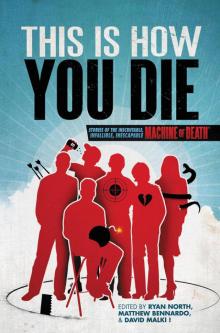 This Is How You Die: Stories of the Inscrutable, Infallible, Inescapable Machine of Death
This Is How You Die: Stories of the Inscrutable, Infallible, Inescapable Machine of Death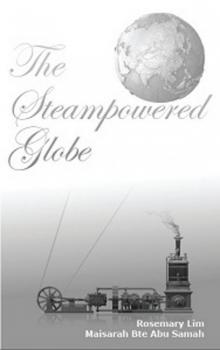 The Steampowered Globe
The Steampowered Globe While We Wait by J. M. Snyder
While We Wait by J. M. Snyder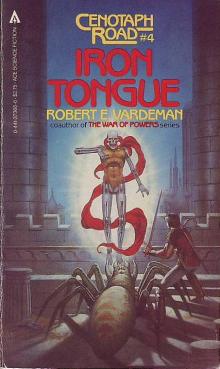 Iron Tongue cr-4
Iron Tongue cr-4![Stieg Larsson [Millennium 02] The Girl Who Played with Fire v5.0 (LIT) Read online](http://i1.bookreadfree.com/i1/03/31/stieg_larsson_millennium_02_the_girl_who_played_with_fire_v5_0_lit_preview.jpg) Stieg Larsson [Millennium 02] The Girl Who Played with Fire v5.0 (LIT)
Stieg Larsson [Millennium 02] The Girl Who Played with Fire v5.0 (LIT)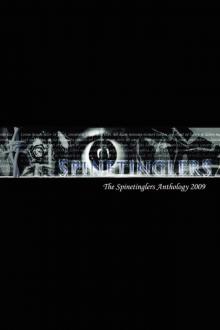 The Spinetinglers Anthology 2009
The Spinetinglers Anthology 2009 Bowles, Jan - Branded by the Texas Rancher (Siren Publishing Classic)
Bowles, Jan - Branded by the Texas Rancher (Siren Publishing Classic) Brown, Berengaria - Vivienne's Vacation (Siren Publishing Ménage and More)
Brown, Berengaria - Vivienne's Vacation (Siren Publishing Ménage and More)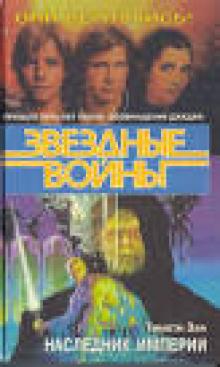 Inheritors
Inheritors Arthur Conan Doyle: A Life in Letters
Arthur Conan Doyle: A Life in Letters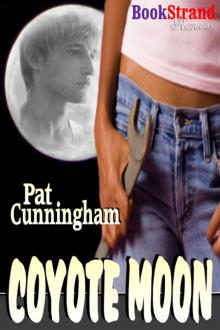 Cunningham, Pat - Coyote Moon (BookStrand Publishing Romance)
Cunningham, Pat - Coyote Moon (BookStrand Publishing Romance)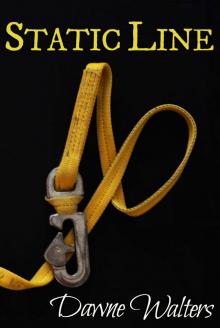 Static Line
Static Line Ghost Mysteries & Sassy Witches (Cozy Mystery Multi-Novel Anthology)
Ghost Mysteries & Sassy Witches (Cozy Mystery Multi-Novel Anthology) Elizabeth Neff Walker - Puppy Love
Elizabeth Neff Walker - Puppy Love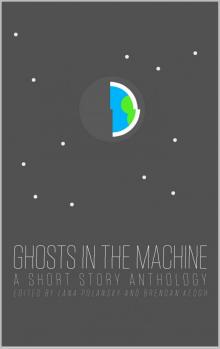 Ghosts in the Machine
Ghosts in the Machine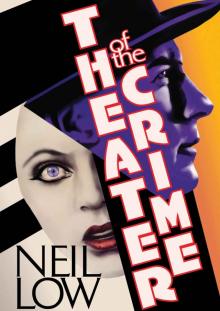 Theater of the Crime (Alan Stewart and Vera Deward Murder Mysteries Book 6)
Theater of the Crime (Alan Stewart and Vera Deward Murder Mysteries Book 6) Red Satin Lips, Book One (The Surrender Series)
Red Satin Lips, Book One (The Surrender Series)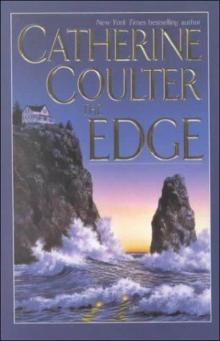 Catherine Coulter - FBI 4 The Edge
Catherine Coulter - FBI 4 The Edge StateoftheUnion
StateoftheUnion Fantastic Women: 18 Tales of the Surreal and the Sublime from Tin House
Fantastic Women: 18 Tales of the Surreal and the Sublime from Tin House Sara Wood-Expectant Mistress original
Sara Wood-Expectant Mistress original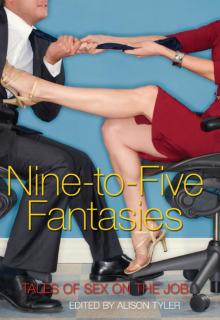 Nine-to-Five Fantasies: Tales of Sex on the Job
Nine-to-Five Fantasies: Tales of Sex on the Job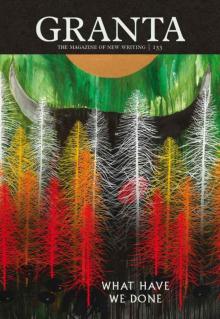 Granta 133
Granta 133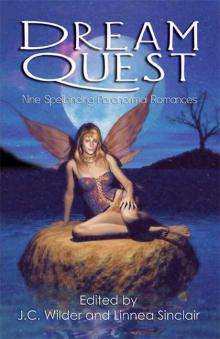 Dream Quest
Dream Quest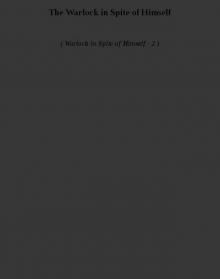 The Warlock in Spite of Himself wisoh-2
The Warlock in Spite of Himself wisoh-2 Glenn, Stormy - Mating Heat (Siren Publishing Ménage Amour)
Glenn, Stormy - Mating Heat (Siren Publishing Ménage Amour) Davis, Lexie - Toys from Santa (Siren Publishing Classic)
Davis, Lexie - Toys from Santa (Siren Publishing Classic) Once Dead, Twice Shy
Once Dead, Twice Shy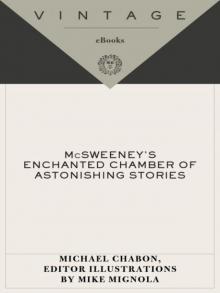 McSweeney's Enchanted Chamber of Astonishing Stories
McSweeney's Enchanted Chamber of Astonishing Stories Zombies: Shambling Through the Ages
Zombies: Shambling Through the Ages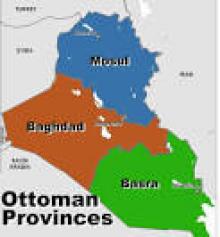 Baghdad Without a Map
Baghdad Without a Map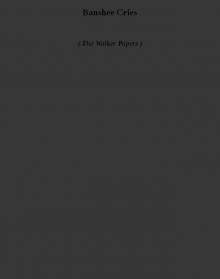 Banshee Cries (the walker papers)
Banshee Cries (the walker papers)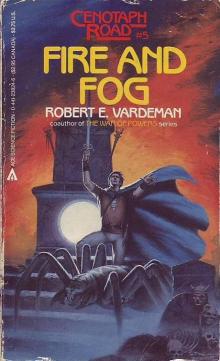 Fire and Fog cr-5
Fire and Fog cr-5 The Twelve Hot Days of Christmas
The Twelve Hot Days of Christmas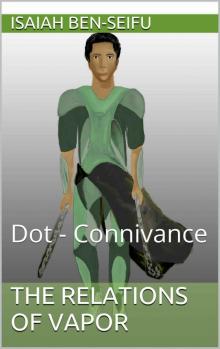 The Relations of Vapor: Dot - Connivance
The Relations of Vapor: Dot - Connivance![Harris, Daisy - Mere Temptation [Ocean Shifters 1] (Siren Publishing Classic) Read online](http://i1.bookreadfree.com/i2/04/11/harris_daisy_-_mere_temptation_ocean_shifters_1_siren_publishing_classic_preview.jpg) Harris, Daisy - Mere Temptation [Ocean Shifters 1] (Siren Publishing Classic)
Harris, Daisy - Mere Temptation [Ocean Shifters 1] (Siren Publishing Classic)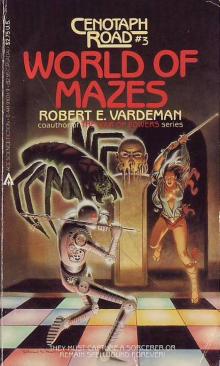 World of Mazes cr-3
World of Mazes cr-3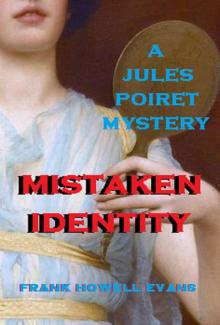 Mistaken Identity (A Jules Poiret Mystery Book 26)
Mistaken Identity (A Jules Poiret Mystery Book 26)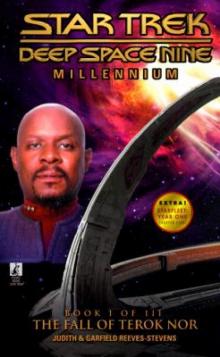 Star Trek - DS9 - Fall of Terok Nor
Star Trek - DS9 - Fall of Terok Nor Not Like I'm Jealous or Anything: The Jealousy Book (Ruby Oliver)
Not Like I'm Jealous or Anything: The Jealousy Book (Ruby Oliver) Skaterboy by J. M. Snyder
Skaterboy by J. M. Snyder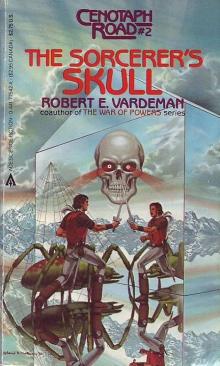 The Sorcerer_s Skull cr-2
The Sorcerer_s Skull cr-2 The Columbia Anthology of Modern Japanese Literature (Modern Asian Literature Series)
The Columbia Anthology of Modern Japanese Literature (Modern Asian Literature Series) New Erotica 5
New Erotica 5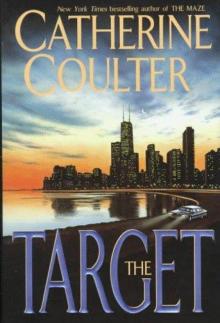 Catherine Coulter - FBI 3 The Target
Catherine Coulter - FBI 3 The Target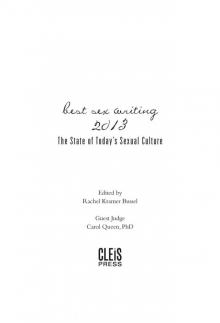 Best Sex Writing 2013: The State of Today's Sexual Culture
Best Sex Writing 2013: The State of Today's Sexual Culture Factoring Humanity
Factoring Humanity Huia Short Stories 11
Huia Short Stories 11 Call of the Wilds
Call of the Wilds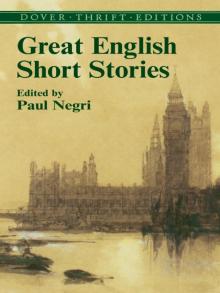 Great English Short Stories (Dover Thrift Editions)
Great English Short Stories (Dover Thrift Editions)![Ramagos, Tonya - Logan's Lessons [Sunset Cowboys 2] (Siren Publishing Classic) Read online](http://i1.bookreadfree.com/i2/04/10/ramagos_tonya_-_logans_lessons_sunset_cowboys_2_siren_publishing_classic_preview.jpg) Ramagos, Tonya - Logan's Lessons [Sunset Cowboys 2] (Siren Publishing Classic)
Ramagos, Tonya - Logan's Lessons [Sunset Cowboys 2] (Siren Publishing Classic)![Morgan, Nicole - Sweet Redemption [Sweet Awakenings 1] (Siren Publishing Allure) Read online](http://i1.bookreadfree.com/i2/04/10/morgan_nicole_-_sweet_redemption_sweet_awakenings_1_siren_publishing_allure_preview.jpg) Morgan, Nicole - Sweet Redemption [Sweet Awakenings 1] (Siren Publishing Allure)
Morgan, Nicole - Sweet Redemption [Sweet Awakenings 1] (Siren Publishing Allure)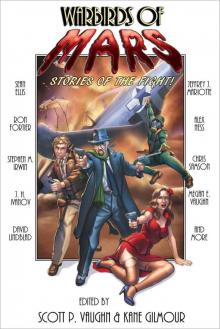 Warbirds of Mars: Stories of the Fight!
Warbirds of Mars: Stories of the Fight! Original Version of Edited Godwin Stories(lit)
Original Version of Edited Godwin Stories(lit) Where The Hell is Boulevard?
Where The Hell is Boulevard?![Chemical [se]X Read online](http://i1.bookreadfree.com/i2/04/13/chemical_sex_preview.jpg) Chemical [se]X
Chemical [se]X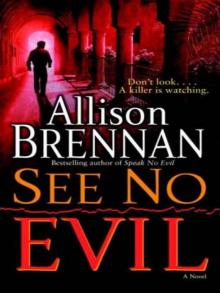 Allison Brennan - See No Evil
Allison Brennan - See No Evil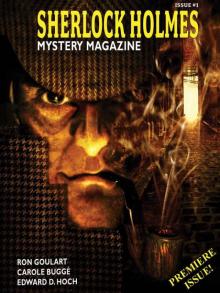 Sherlock Holmes Mystery Magazine #1
Sherlock Holmes Mystery Magazine #1